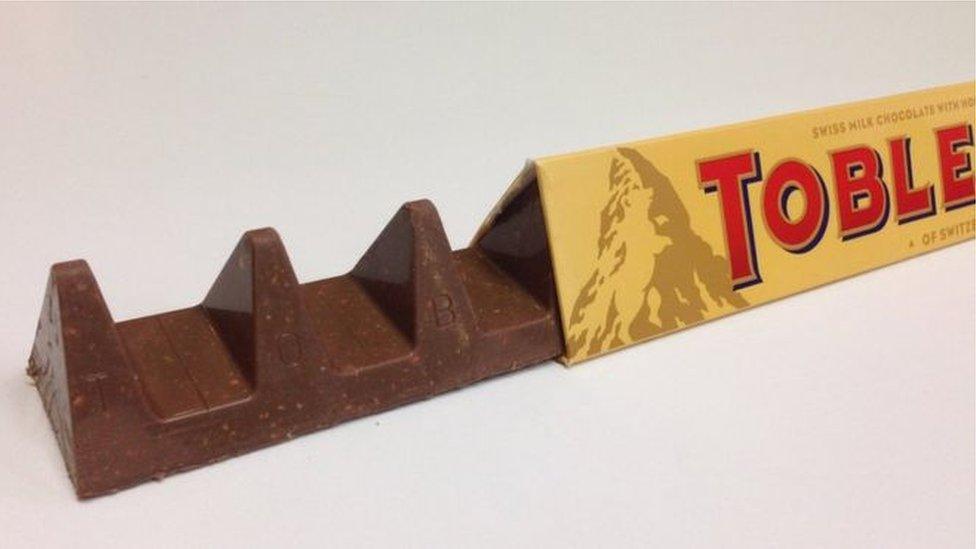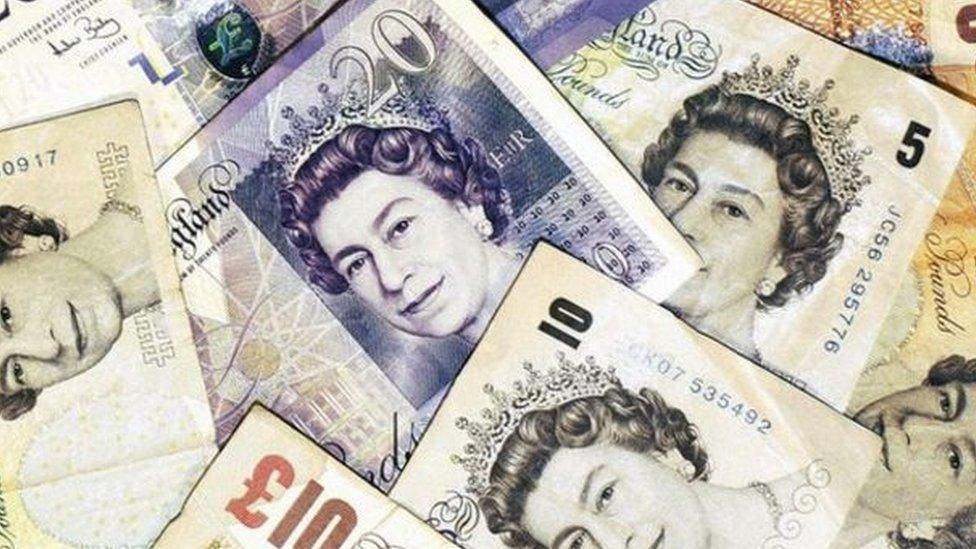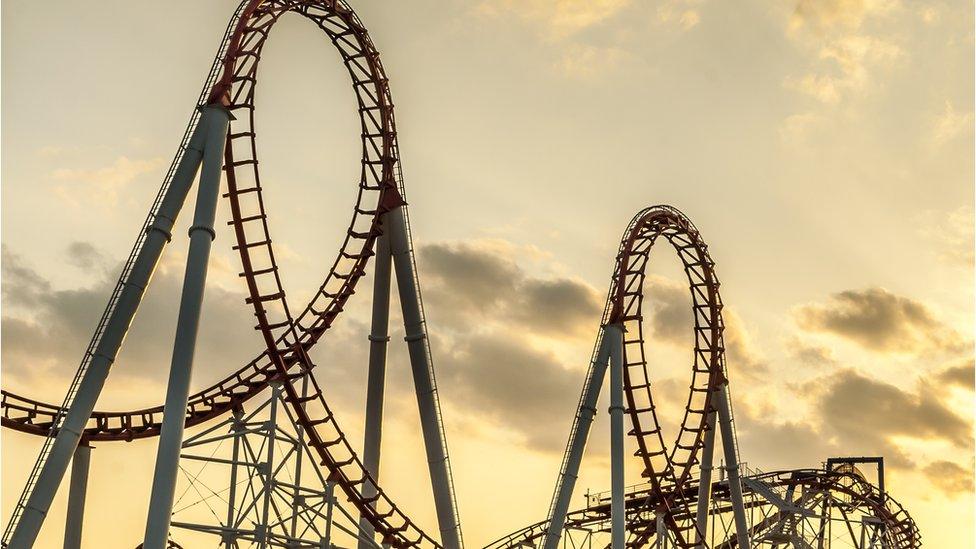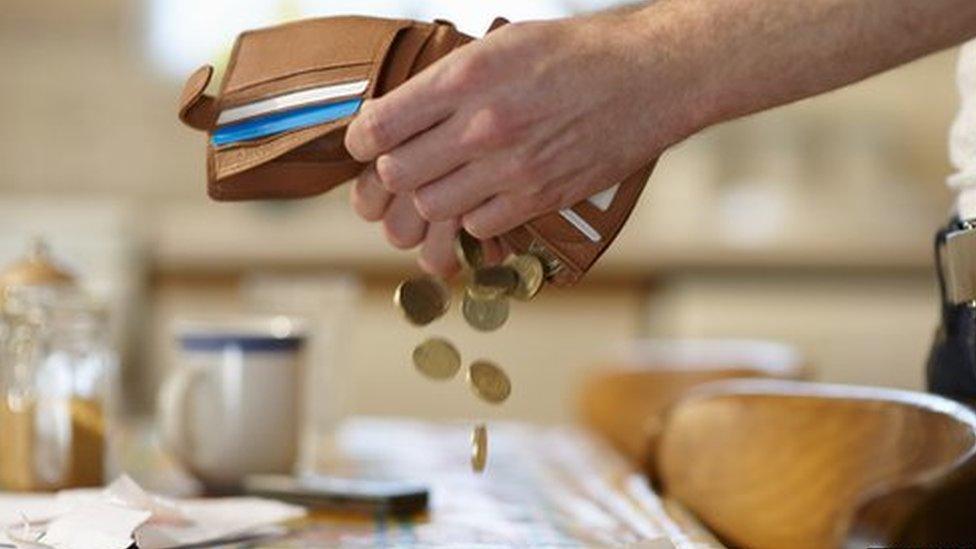Debt and chocolate: How 2017 is set to hit your pocket
- Published

Inflation, shrinking products and wage changes could be in store in 2017
January is traditionally a month to count the cost.
After Christmas, it's all about calories, credit card bills and how to get them under control in the new year.
But how much will the year ahead cost us all?
BBC News NI's economics and business team have looked into the crystal ball for the year ahead to give us a financial forecast for 2017.
Doing a Toblerone?
Chocolate fans were cocoa-ing mad in 2016 when Toblerone announced they were changing the shape of their distinctive bars.
The manufacturers said the change was designed to reduce weight because of a rise in the cost of ingredients.
It's called 'shrinkflation' - rather than companies charging you more for your chocolate bar, they make the bar smaller.

The decision to change the shape of Toblerone chocolate bars caused controversy
But will we see more and more makers cutting costs through redesigns? And what does that mean for our favourite confectionary?
One big retailer the BBC spoke to recently said they wouldn't do this, because it causes dreadful publicity for any company caught reducing the size of their products.
They said they would rather be up front and tell customers of price rises rather than shrinking the size.
However, you can probably expect more of this sort of thing as commodities, such as dairy and coffee, become more expensive.
The manufacturers will not want to be seen to pass that cost on to the consumer - so reducing the size could be one action they take.
Inflation situation
The big thing to look out for in 2017 is inflation. Are everyday items going to get more expensive?
"We're already starting to see some evidence of that. We've lived through a period in the UK where inflation has been incredibly low," said BBC News NI's Economics and Business Editor John Campbell.

Will our money go less far in 2017 thanks to inflation?
"People's standards of living have improved as a result because wages will go further.
"There was a period a year ago where were in negative inflation so prices across the economy were actually falling, but now they're starting to creep up again.
"You can see that in the oil market. Across 2016, oil prices in wholesale markets were up nearly 50%.
"You won't have seen that at the pumps or in your home heating costs, but it will start to feed through."
It's also happening in other commodities. Coffee was up 20% in the wholesale markets in 2016. So expect inflationary pressure to feed into the high street in 2017.
You can also expect more pressure on prices to come from Brexit.
We know that after the Brexit vote, the pound weakened and that made it more expensive for imports.
And there's a lot of stuff we import - food, for example, and clothes.
The boss of Next has said he expects prices to go up by the middle of 2017.

Unfortunately the debt deflation spiral isn't a new theme park attraction
Down the debt spiral
Now, let's talk about something that sounds faintly terrifying - the debt deflation spiral.
It's not a rollercoaster, although it is something that may give you quite a shock if you're unlucky.
The Bank of England has a 2% inflation target. They would like to see prices gently rise across the economy. And they want that rise so that we can avoid that dreaded spiral.
"The debt deflation spiral means that if prices are falling people won't bother buying something now because they expect it to be cheaper in the future," said our editor.
"So people keep holding off, sucking all the demand out of the economy and leading to, you guessed it, the spiral."
At the moment, inflation is only 1.2% and it's expected to rise further.
So, you want to have a little bit of inflation - but not too much.

Will wages keep apace with rising prices?
Wage gauge
The other thing we have to watch out for is wages.
Will wages keep pace with prices? If they don't, people will start to feel the squeeze.
"If prices go up by 3% and your wages only go up by 1%, then that's effectively a pay cut for you," said our economics and business editor.
"In Northern Ireland, we're in an interesting position because the labour market is strong locally.
"We're close to our best ever employment figures. The percentage of adults in work is pretty much at record levels, so, in that situation, you would expect people would be in the position to ask for and receive pay rises."
However, it's unclear if that happen in 2017.